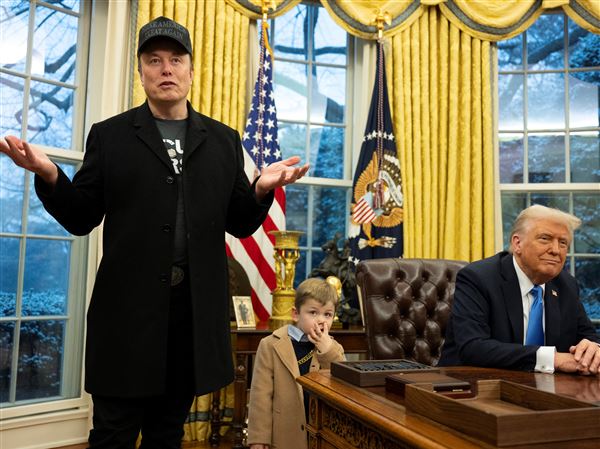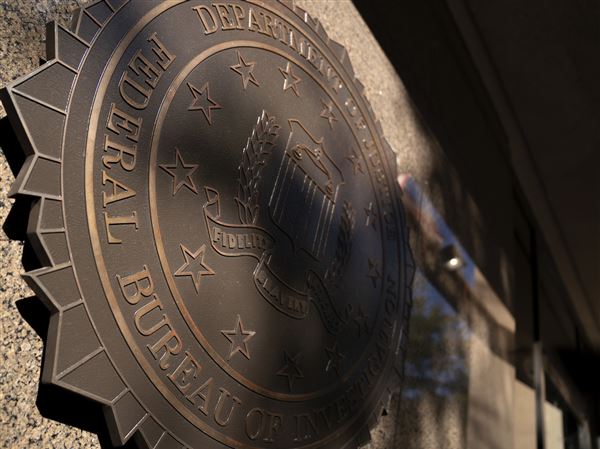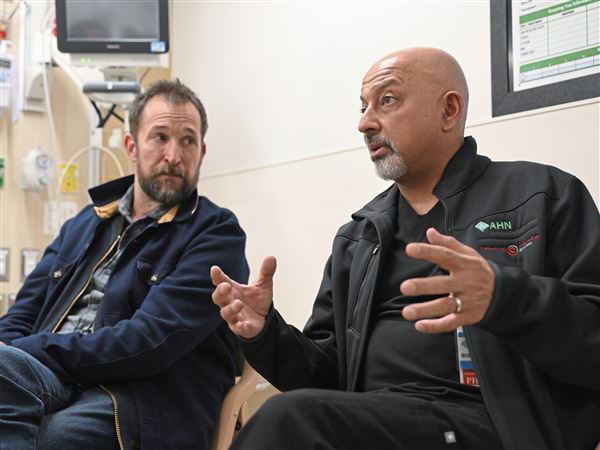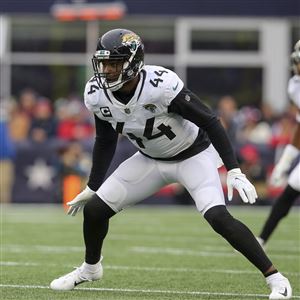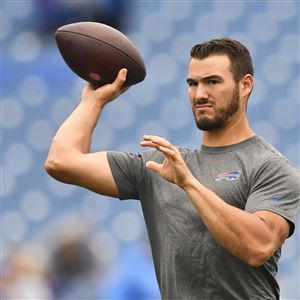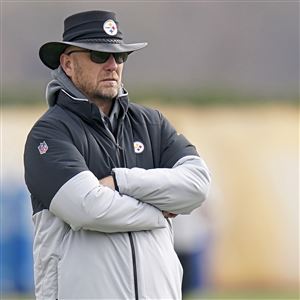Is Mike Tomlin too involved with the Steelers defense? Will Mike Tomlin have too much power when the team gets a new general manager? And what will Mike Tomlin do without Ben Roethlisberger as quarterback?
Even as Tomlin turns 50, with 15 years down as the head football coach in Pittsburgh, there’s no dearth of questions and new challenges awaiting him as the travels out of Bill Cowher Territory and crosses into Chuck Noll Country.
When the 2022 campaign kicks off, Tomlin will pass Cowher as the second-longest tenured coach in Steelers history, trailing only Noll’s 23 trips through the wringer. Perhaps it seems like just yesterday that the Steelers hired a 34-year-old with one season of experience as a defensive coordinator to become the first Black head coach in franchise history. Or it might feel as though Tomlin’s been here forever, and it’s hard to remember a time when he wasn’t roaming the sideline in Pittsburgh.
Your perspective surely depends on your opinion of Tomlin and his performance, the job he’s done to this point and the job he’s doing. As he enters the next phase of his career without a playoff victory since 2017, he’s as much of a lightning rod for criticism as he’s ever been.
Tomlin doesn't talk much this time of year, preferring to get neck-deep into free agent roster-building and NFL draft preparation behind the scenes, but his actions have spoken volumes. He hired Brian Flores in February, despite the new linebackers coach and senior defensive assistant filing an unprecedented lawsuit against the NFL and three teams alleging racial discrimination. He retained Matt Canada, doubling down on his belief in a play-caller who presided over one of the more impotent Steelers offenses this century.
As Tomlin hits the half-century mark in life and embarks on rarified air among head coaches — only New England’s Bill Belichick has been with his current team longer — the Post-Gazette spoke with one mentor, one former player and one longtime friend about a man who steadfastly steers clear of discussing his own legacy.
‘He’s got control’
To this day, Tony Dungy’s not sure if Tomlin even knew he was sitting in the back of that meeting room. Not long after Dungy hired Tomlin to be the Buccaneers’ defensive backs coach in 2001, the head coach dropped in on the new guy’s first meeting with his position group just to observe, see how things would go.
“He just introduced himself, what they're going to do, how he’s going to make them better. He had the attention of John Lynch, Ronde Barber, Dexter Jackson, everybody in that room,” Dungy recalled. “After about five minutes, I said, ‘He’s got control of this room, and I don’t ever have to come back in here.’ And I never did.”
Tomlin wasn’t much older than those Tampa Bay stars at the time — he’s actually six months younger than Lynch — and he’d never coached in the league they’d enjoyed so much success in. But a year later, they would all be Super Bowl champions together.
Now two decades later, Tomlin still commands a room, but he doesn’t have to earn the attention of his players. That gravitas comes with the 162 career wins, seven AFC North titles and a Super Bowl ring that came in just his second season in charge of the Steelers.
“He reminds me of Coach Noll. He was the same way,” Dungy was saying last week. “He had that passion and energy. It’s just hard to believe that Mike’s been there 15 years, but he’s still with that youthful energy and passion, no doubt.”
Dungy is as much of an authority on that as anyone, given that he played and coached under Noll in Pittsburgh, then went on to serve as a mentor to Tomlin after giving him that first coaching job in the NFL. It didn’t take more than 10 minutes for Dungy to realize that the young defensive backs coach at the University of Cincinnati was confident but not cocky, knowledgeable but not a know-it-all.
Six years later, Tomlin would make a similar impression on Steelers ownership, and according to Dungy, the late Dan Rooney called to let him know how much they liked the then-Vikings defensive coordinator.
“I don't think he's a lot different now — maybe a little more mature, and he’s seen some different things, but still has the ability to relate to players of all ages,” said Dungy, an NBC analyst who’s now crossed paths with Tomlin as a boss, competitor and outside observer. “I think he does a great job of defining who the Steelers are going to be and what he wants, and all his guys relate to that. When you talk to guys who have played there, that’s what they talk about — him setting the tone and getting everybody on the same page. I think he still possesses that ability.”
With the mutual loyalty Dungy has come to expect out of both the Steelers and Tomlin, he said he wouldn't be surprised to see Noll’s record of longevity threatened. But he also knows that Tomlin will be coveted by others, and not just NFL teams.
Last month it was rumored that Rams coach Sean McVay, fresh off winning the Super Bowl, was offered $100 million to be a color commentator for Amazon and turned it down. And after stepping away from the Saints, there was much speculation that Sean Payton would be paid handsomely to take a media gig. As networks become more and more willing to throw around big bucks for big names, could a certain high-profile, highly verbose coach go down that road?
“I know this, Mike Tomlin is exactly what television people are looking for,” said Dungy, who made the move from the field to the studio in 2009. “We’ve asked him several times to be on our Super Bowl broadcast. We always try to interview him. He would be dynamic in the booth. They are throwing around these salaries that are crazy ridiculous, but I think Mike is a football coach. I think he enjoys working with young people — molding lives and not just football careers. I think he’s still got a lot of that in him. Someday, maybe so, he would be ideal, I think, in the television market. But I just don't see it coming anytime soon.”
‘No gray areas’
It was in Ryan Shazier’s second NFL season that he came away from a fierce clash with the rival Baltimore Ravens and felt pretty good about the way he played. The Steelers lost, 20-17, but Shazier racked up 13 tackles that tied for a career-high, so he wasn’t expecting to hear Tomlin’s postgame message for him.
“He told me, ‘The way you're playing right now is hurting the team, and if you continue to play like that, I'm going to bench you,’” Shazier remembered last week. “I feel like from that moment on, that sparked my fire, from my second year all the way until I got injured. No matter who you are, if you continue to play at a certain level, he’s going to pull you. To me, that always fueled my fire.”
Indeed, Shazier would soon turn into a transformative player in the middle of the defense, earning Pro Bowl honors the next two years. It’s anyone’s guess how many more accolades he would’ve racked up if not for his career-ending spinal contusion late in the 2017 season.
As the every-down inside linebacker and primary communicator on defense, Shazier worked as closely with Tomlin as any player. He had to prove he could be trusted, and after some initial ups and downs as a first-round pick, Shazier became indispensable as Tomlin’s defensive quarterback.
“The biggest thing with me that I really enjoy and always love with coach Tomlin is there’s no gray areas,” Shazier said. “He doesn't beat the bush. He tells you how it is. I think that’s something that really helped me in my career and helped a lot of guys in their career. Some guys don’t like that, but some guys do.”
Shazier, who officially retired in 2020, still lives in the Pittsburgh area and said he still stops by Steelers headquarters from time to time. Tomlin reached out to congratulate him on his book, “Walking Miracle,” which was published late last year.
Asked if Tomlin has tuned in to his weekly appearance on “The Ringer NFL Show” over the last two seasons, Shazier chuckled.
“He hasn't said much about the podcast,” Shazier said. “I don't know if he listens to it. I think it’d be better if he didn't.”
Shazier is mostly complimentary of the organization that helped take care of him and honored his contract throughout his recovery, but sometimes, he has to call it how he sees it. He wishes the Steelers would’ve made a major move at quarterback this offseason, but he’s also eager to see how Tomlin navigates life after Roethlisberger.
And, naturally, he’s heard all the usual criticisms of his former coach. Tomlin’s teams lose games they shouldn't. Tomlin’s teams don’t start fast. Tomlin’s teams choke in the playoffs.
“I’m going to say, as a player, a lot of that stuff kind of falls on the players, as well. To me, I feel that one thing the players do — and it’s not something coach Tomlin does — is that we settle to the competition a lot of the time, and try to fight our way back toward the end,” Shazier said. “I honestly feel that if we get the right guy in there [at quarterback], we have the right culture. I think things can change. We have some solid pieces. We just have to get a good quarterback. We have good leadership on the defense, as well. It’s just going to be a new flavor.”
One thing Shazier won't believe until he sees it is the Steelers having a losing season under Tomlin. You don’t hoist a trophy or raise a banner for a .500 record, but in a league with so much parity, Tomlin’s consistency is unparalleled.
“I think it’s super impressive,” Shazier said. “Bill Belichick might be considered the greatest coach of all time, and you have all these awesome coaches, but they've all had losing seasons before. Most of the coaches with great seasons, great records, Super Bowls, they have a winning quarterback like Ben with them. But when those losing seasons come, it’s when their quarterback goes down. One thing coach Tomlin’s been able to do is still win in the midst of adversity. I think that’s something he builds his team on. People try to say it’s overrated, but at the end of the day, there are coaches every year who get fired for losing. To me, winning is never overrated.”
‘A straight-shooter’
It was in the early days of the COVID-19 pandemic, and Mike Locksley found himself in the same boat as many others. Suddenly, he had more free time than he knew what to do with.
Maryland’s head football coach was in his backyard, reflecting on his profession, and decided it was time for him to make more of a difference. The result was Locksley starting an organization to promote advancement of minority coaches at all levels of the sport, and his first call for help was to someone he’d known since they broke into the business together around the same time in the 1990s.
“I’m all-in, Locks,” is what Tomlin told him on the other end of the line, with one caveat: He wants to be hands-on, not just a figurehead. As Locksley put it, “We’re both in the back-nine of our careers. We’re seeing the 18th hole. It’s just a matter of doing something to pay it forward before our time runs out.”
Months later, Locksley founded the National Coalition of Minority Football Coaches and brought Tomlin on to the board of directors. At the time, neither could’ve predicted that the Flores lawsuit would spark a renewed conversation about the NFL’s hiring practices and whether all candidates are getting a fair shake.
Locksley just knew that the Hampton, Va., native he became close with while working at Maryland — where Tomlin’s older brother Ed played in the ’80s — was “one of the champions of this profession for us as minority head coaches.” While Tomlin doesn't always comment publicly on the issue, especially in the throes of the offseason, Locksley makes it clear that he’s doing plenty in silence. Last year, he was a keynote speaker at the Coalition’s inaugural virtual convention and attended a charity golf event in the Pittsburgh area in the offseason.
“He wants to be heavily involved in helping to prepare that next wave of coaches who want to be head coaches, whether it’s at the NFL level, the college level, the high school level,” Locksley said “He's really into the grassroots part of the game in terms of teaching it, the proper way to lead a program. ... He’s played a major role in a lot of the decisions we’re making as an organization. I really appreciate having his guidance, his expertise, as well as him being on the front line of this.”
In addition to friend and colleague, Locksley and Tomlin have had another interesting dynamic in their relationship. For the past three years, Locksley coached Tomlin’s son Dino, a wide receiver who played at Maryland after a stellar high school career at Shady Side Academy.
Dino Tomlin never cracked the wideout rotation for the Terrapins and transferred to Boston College this offseason, but as one of few coaches who has gotten a glimpse of Mike Tomlin the Football Dad, Locksley insisted it was never an awkward situation for either side.
“Dino was a great teammate, one of those guys who gave everything he had. As for Mike, he was like I was once you get them to that stage,” said Locksley, who also had three sons play college football. “He’s done a great job of raising Dino and all his kids. He’s raised them to be able to make the tough decisions and understand the fact that, ‘Who I am is not representative of what you do and how you perform.’ I think Dino understood that.”
What Locksley found refreshing is that whenever the family would come visit, Tomlin never asked for any guarantees or special treatment, and instead was just there to “support Dino like a typical parent.” If anything, Tomlin looked forward to that part of it when he had a rare free weekend. Locksley recalls him saying how great it would be to actually tailgate and have a good time before a game for once, an aspect of football culture that many coaches never get to appreciate.
“He just wanted to be dad,” Locksley said. “I would say, ‘Hey, you need anything?’ He'd say, ‘Locks, you worry about your team. Coach the game. I’ll be good, go to the tailgate, smoke a cigar, hang out and watch my boy.’”
Other than seeing him tackle the ins and outs of fatherhood, Locksley doesn’t notice much different about Tomlin now from the ambitious assistant coach he’d run into in D.C., Maryland and Virginia while they were rising through the ranks. Tomlin was focused and deliberate from a young age, and he’s the same now after being in one city for more than a third of his life.
Well, there is one part of Tomlin’s evolution that Locksley can’t help but laugh about.
“He’s got a pretty vast vocabulary,” Locksley noted. “I can’t recall that, but I do know this: There are times I hear him speak or see one of his interviews, and I pull out my phone to look up some of the words he uses.
“But, honestly, just his consistency, how he approaches it; there’s no such thing as B.S. with him. He’s a straight-shooter, whether it’s on certain issues, or dealing with players. I think that’s what people respect — the consistency he’s shown in terms of who he is and how he handles his business.”
Brian Batko: bbatko@post-gazette.com and Twitter @BrianBatko
First Published: March 15, 2022, 10:00 a.m.
Updated: March 16, 2022, 3:18 a.m.

